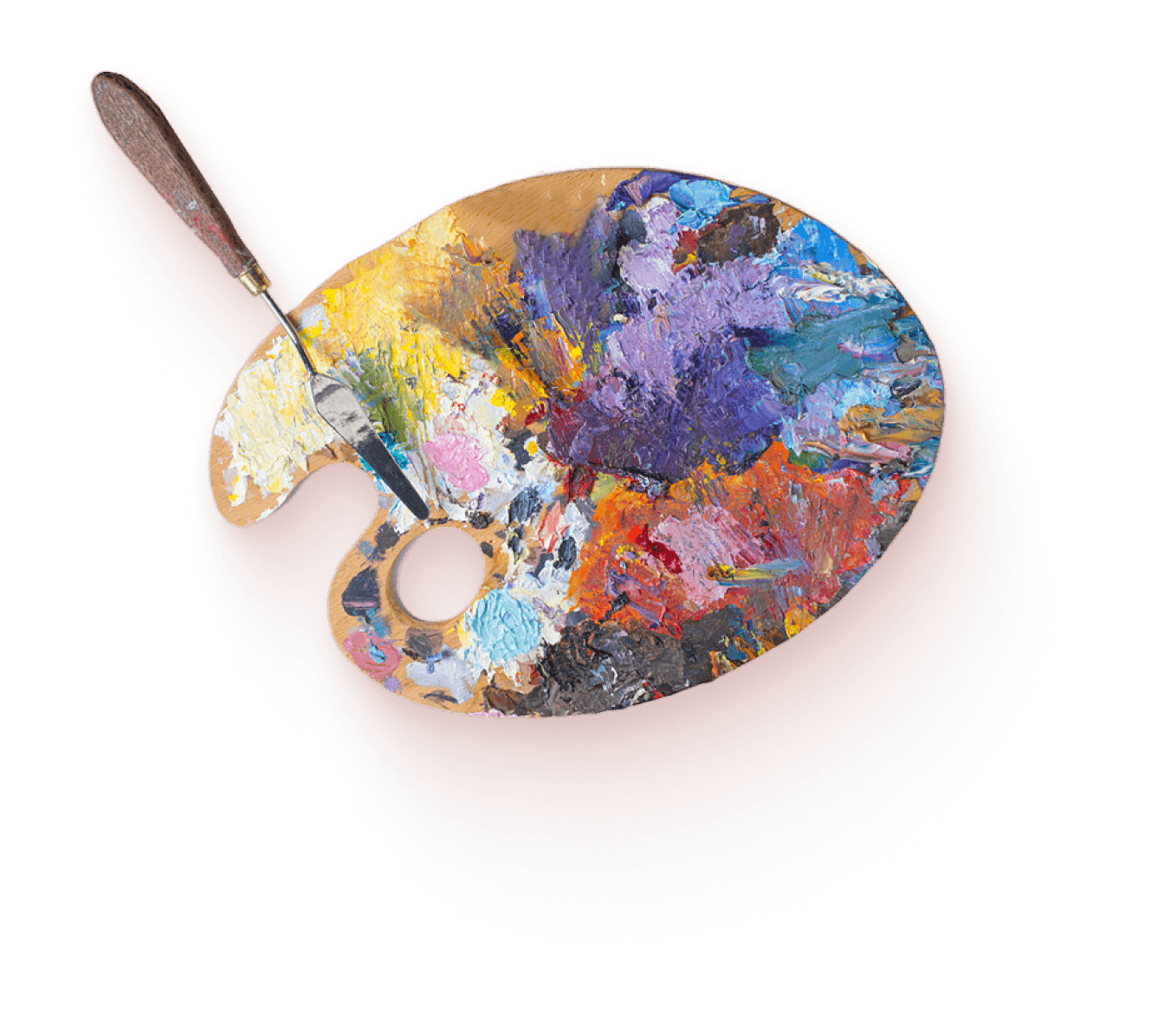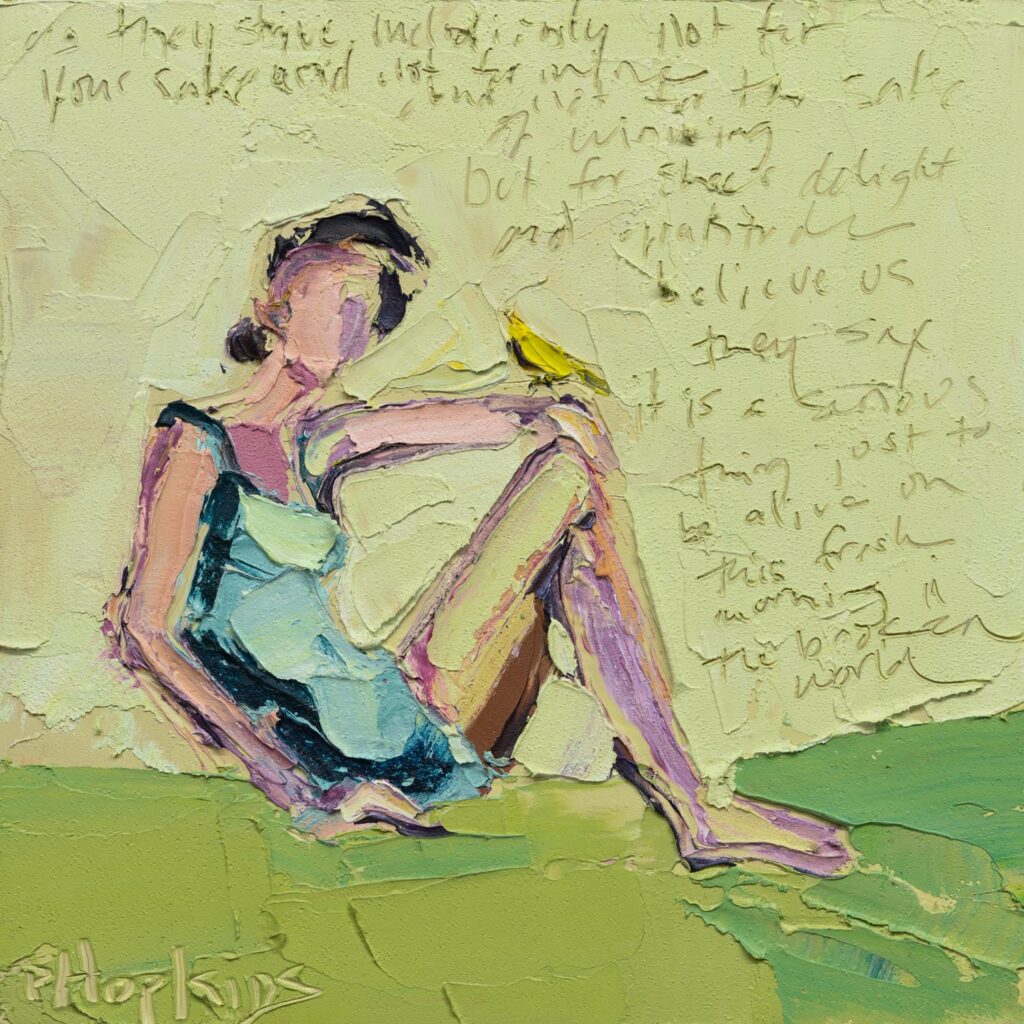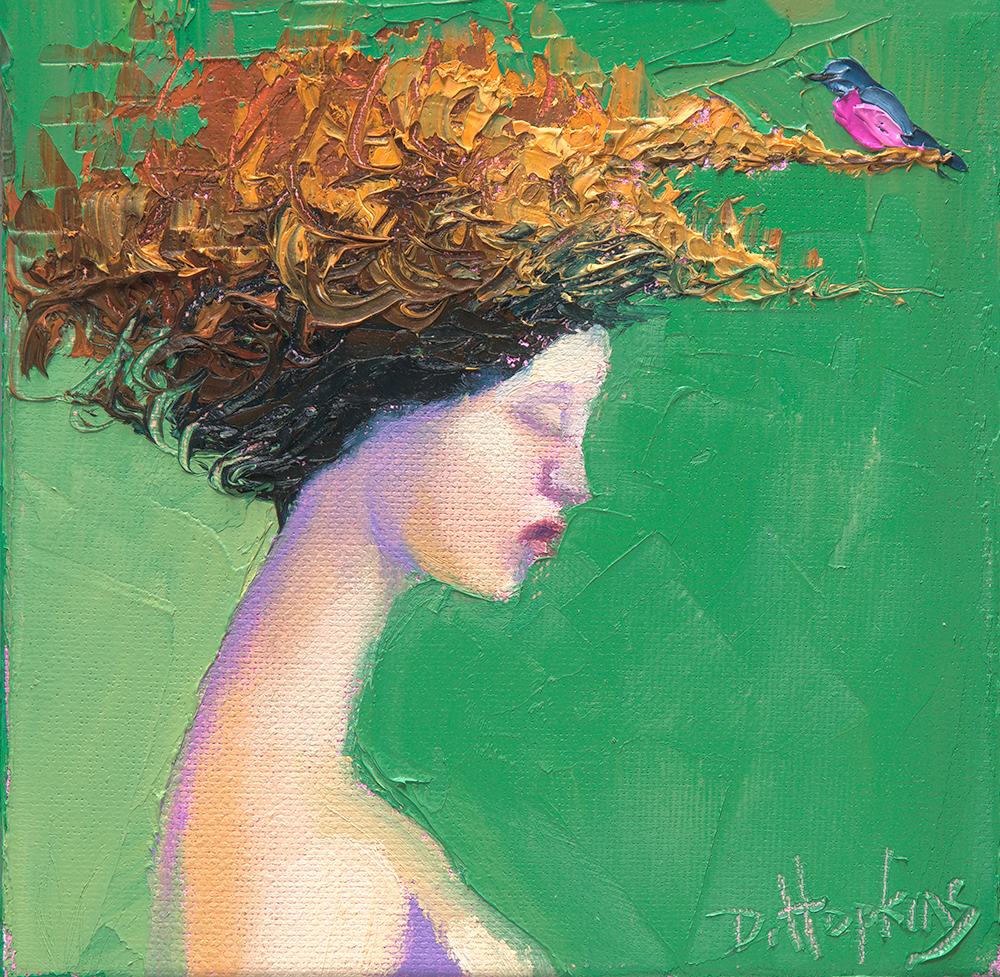Prepare a Face to Meet the Faces you will Meet
Home > Prepare a Face to Meet the Faces you will Meet
[et_pb_section fb_built=”1″ admin_label=”section” _builder_version=”3.0.47″][et_pb_row admin_label=”Row” _builder_version=”3.0.48″ background_size=”initial” background_position=”top_left” background_repeat=”repeat”][et_pb_column type=”2_3″ _builder_version=”3.0.47″ parallax=”off” parallax_method=”on”][et_pb_text admin_label=”Text” _builder_version=”3.19.12″ background_size=”initial” background_position=”top_left” background_repeat=”repeat”]

Alfred and Mary
In my last post, I wrote about the new series of paintings I’m developing based on Mary Oliver’s poem “Invitation.” In this series, I’ve been changing up two things. First, I’m using cold wax medium in the paint which amps up the texture as well as gives the paint this waxy, translucent quality I really love. Second, I’m painting quite a few faces, real human faces with eyes and noses and protruding chins– you know, the whole nine.


My love affair with Oliver’s poetry has been going on for a couple years now. For me, reading it is almost more of a spiritual than a literary pursuit. Her poetry is the only thing I read from a real, hard-covered book and not a screen. Sometimes I make tea or light a candle. It feels sacred. When I close the book, I feel more calm, more hopeful, more secure.
But it wasn’t quite so long ago, or maybe a very long time ago depending on how you look at it, that I had a different favorite poet. I first encountered T.S. Eliot’s “The Love Song of Alfred J. Prufrock” as a teen in the nineties. I clung to it, quoted it, read and reread it, and memorized most of it for at least the next twenty years. In fact, in college I did a series of paintings (two pictured below) based on one line from the poem: “I grow old, I grow old, I shall wear the bottoms of my trousers rolled.”


If you’ve not read the poem, I still highly recommend it, although I’ll warn you that the speaker is a tortured, self-important, middle-aged balding man who catastrophizes, worries, and obsesses. He is, quite frankly, exhausting. But I loved it (and still do) because it’s gorgeous. It also speaks to my own self-deprecating and still egoistic tendencies. I felt the closest to Prufrock in my early twenties when I wanted to tell a boy I was interested in him and thought the whole universe hung in his response. Turns out, and I know this might surprise you, it didn’t.
In the fourth stanza, there’s this phrase I’ve long carried with me– “Prepare a face to meet the faces you will meet,” and as I’ve been painting these faces, I keep thinking of it. It’s like what we do on instagram– prepare a certain face to present to other highly cultivated and curated faces. I’m funny! I’m quirky! I’m important! Meanwhile, underneath the prepared face, aren’t we sometimes just little insects “formulated, sprawling on a pin…wriggling on the wall” under the close inspection of others?
Invitation to Linger
Now as an almost forty year old, I feel most at home not in Prufrock’s world but in Olivers where the natural world can be nothing other than what it is. Life is not measured out with coffee spoons and our existence does not disturb the universe; it is a tiny but vital part of it.
Prufrock says, of his mundane dilemma to ask a love interest a question, that he has “wept and fasted, wept and prayed” while in “Wild Geese” Oliver reminds me that “you do not have to walk on your knees for a hundred miles through the desert repenting.” In Prufrock’s mind, he can “disturb the universe” by simply asking a question, whereas Oliver suggests in many of her poems and literally in “Wild Geese” that despite our despair and longings, “the world goes on.”
Armed with the poetry from two very different seasons of my life, I have been preparing faces to meet yours, but I hope they will do so in honesty and not in fear. I hope they are more Oliver than Prufrock; I hope they will invite you to linger as they have me.
These paintings have beckoned me to pause and to get out of my own head. I want each one to remind me that the universe does not hang in the balance of either my thoughts or my art, and therefore, both are free to just be part of it. Part of the universe and not at war with it– what a lovely notion. I’m working to let go of the strain and agony of my more Prufrock self and settle into the “rather ridiculous” performance of the goldfinches that are everywhere performing “not for your sake or for mine but for sheer delight” in my new paintings.
[/et_pb_text][/et_pb_column][et_pb_column type=”1_3″ _builder_version=”3.0.47″ parallax=”off” parallax_method=”on”][et_pb_sidebar area=”sidebar-1″ admin_label=”Sidebar” _builder_version=”3.0.74″ remove_border=”off”][/et_pb_sidebar][/et_pb_column][/et_pb_row][/et_pb_section]
Denise Hopkins
May 20, 2021
Share Post
blog
Related Blog Posts
Sheer Delight and Gratitude: Mary Oliver’s Invitation
“Sheer Delight and Gratitude” Invitation by Mary Oliver Oh do you have time to linger for just a little...
Art/Poetry Spotlight: “Fire Kindled Before you were Born”
Fire Kindled Before you were Born, 6×6, oil on canvas Last month, the gallery hosted our first ever poetry night....
🎨 A Father’s Day Gift Guide for Every Kind of Dad (Featuring Fine Art Prints!)
Father’s Day is in a few short weeks. Celebrate the dad in your life with art this year! He has...

Join the Denise Hopkins Fine Art VIP Club Today
Become a member and enjoy early access to new releases, exclusive discounts, and a new wallpaper for your computer or tablet. Elevate your art journey with us.




2 Responses
Thank you for sharing this small piece of writing. I, too, was sucked into the world of Alfred J. Prufrock as I could relate to thinking too much of myself by thinking too little of myself. In fact, I came across this article by accident, I was only looking to find out more about this particular line which I also have quoted for many years because I felt as if I lived that way for many years. It was amazing to read your similar experience, and I plan on reading ‘Wild Geese’ which I do not know to be honest. It started about 6 months ago, but I believe I am transitioning more into the Oliver state of mind as opposed to the Prufrock and it is amazing that I came across this article! I can actually sharing in an English course that I thought it was an extremely egotistical question.. if I could disturb the universe!!! Thank you!!
Thanks so much for your feedback, Timothy. It was such a pleasure to hear about our shared experience. Please let me know what you think of “Wild Geese”.